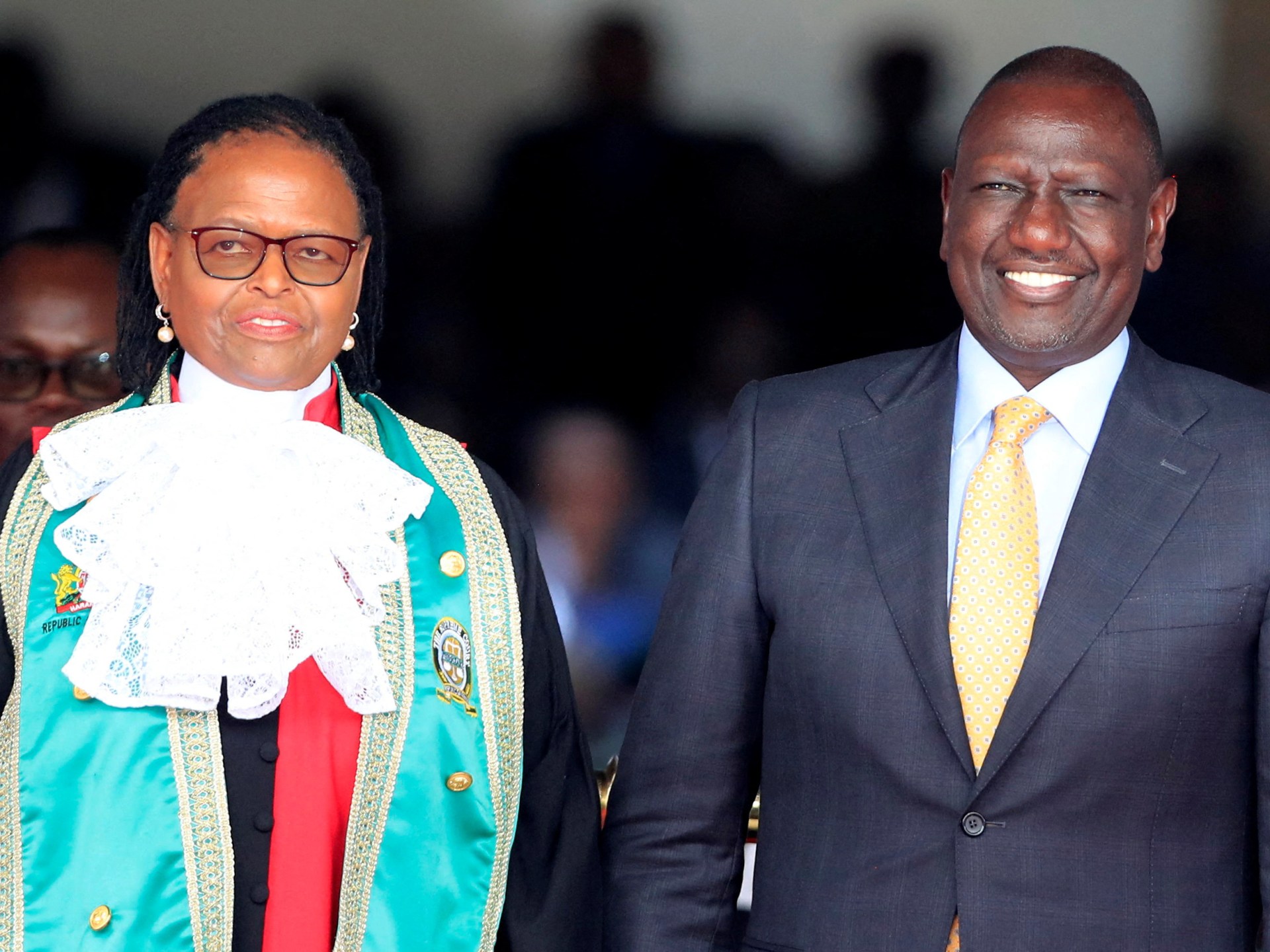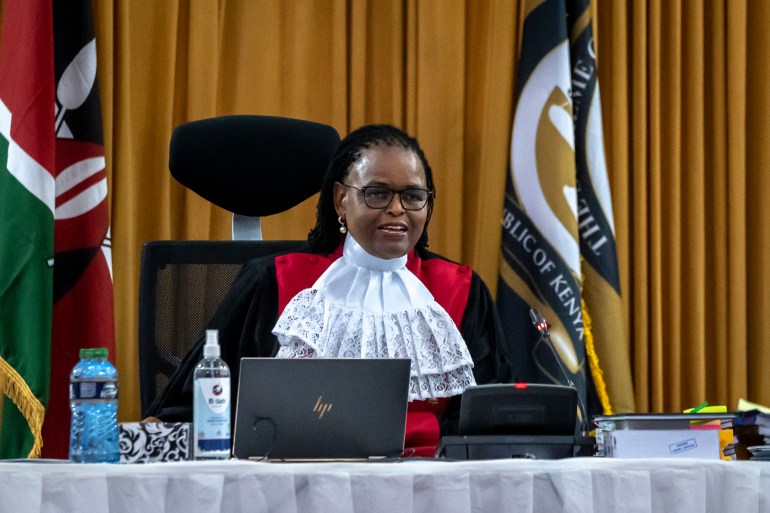
Nairobi, Kenya – Last week, Kenyan President William Ruto became embroiled in a dispute with the judiciary, threatening to defy court orders restricting his flagship policies and accusing judges of corruption.
At a public event on Tuesday, Ruto said some unnamed judges were colluding with the opposition to delay key government projects such as a housing fund and general health initiatives.
“It is not possible for us to respect the judiciary while some individuals who benefit from corruption use corrupt judicial officials to block our development projects,” Ruto said.
The government suffered a major setback in November when a high court in Nairobi declared a housing levy introduced by Ruto unconstitutional.
According to the justices, the plan to raise taxes to build affordable housing was unconstitutional and discriminatory, a declaration that angered the executive branch.
“We are a democracy. We respect the independence of the judiciary and will protect it. “What we will not allow is judicial tyranny and judicial impunity,” Ruto said on Tuesday, triggering a wave of outrage among Kenyans and judicial circles.
His remarks were the second time in three days that he commented on court decisions. In a national address in the final hours of 2023, he harshly criticized the judiciary and accused it of making decisions against state policy at the expense of the public interest.
Here you will find everything you need to know about the current situation:
How come?
The housing initiative was introduced by Ruto’s predecessor Uhuru Kenyatta at the start of his second term in office in 2018 as part of much-lauded economic reforms.
Like Ruto, Kenyatta faced legal challenges after he proposed taxing Kenyans to finance the project. A court blocked that offer in 2018, forcing him to work with financial institutions and private developers.
By 2021, Kenyatta’s government says it will have built around half of the planned 500,000 houses.
Since taking office in August 2022, Ruto has proposed several comprehensive reforms. One of these was changes to the labor law that allowed deductions of 1.5 percent of employees’ basic salaries and corresponding amounts by employers to finance housing for low-income earners. Ruto planned to build up to 200,000 houses every year under the project.
Several Ruto reforms – including cuts to fuel subsidies, the planned privatization of state assets and tax regimes – have run into legal challenges as Kenya struggles under the weight of crippling debt and a cash crunch.
Then from March to July there were the protests by opposition leader Raila Odinga against the new taxes and the rising cost of living. Even today, Kenyans continue to complain.
Wilson Omondi, a 31-year-old accountant from Nairobi, told Al Jazeera that tax deductions from his salary had become too high. “There are things I expect from the government, like affordable, high-quality healthcare… but a house isn’t one of them… [and] If the government wants to create jobs, it should build industries and improve the business environment. I don’t want to pay housing tax for a house that I or my children will never live in.”
All this has frustrated the president, and the November ruling halting the introduction of the housing levy appears to have triggered his outburst.

The president’s comments have raised fears among Kenyans of a return to the dark days of dictatorship, with some even directly comparing him to his former mentor, former President Daniel Arap Moi.
Under Moi, who was president of the long-standing one-party state from 1978 to 2002, extrajudicial killings were commonplace. Ruto – whose popular “safari suit” beloved by previous dictators has only drawn more comparisons to autocrats – began his political career as a youth leader in a group within the then-ruling party.
“President Ruto’s attacks on the judiciary… bring back memories of the Moi era when the president was in charge and he was judge, jury and executioner – all powerful and controlling all arms of the government,” Bravin Yuri, a political scientist said AlJazeera.
There was also opposition to Ruto’s response from Odinga, Chief Justice Martha Koome, the Law Society of Kenya (LSK) and the Judicial Service Commission.
In a statement on Wednesday, Koome warned of the risk of anarchy if the independence of the judiciary is not respected. “When state or public officials threaten to defy court orders, the rule of law is compromised and the conditions are created for anarchy to reign in a nation,” their memo said.
The LSK urged its members to take part in a peaceful nationwide protest next week as its president Eric Theuri said Ruto as the “first guardian of the rule of law” should use the courts to challenge legal decisions.
The president, Theri added, should remember that he is a beneficiary of the judiciary’s decisions after the 2022 presidential election.
Odinga described Ruto’s attacks on the judiciary as unacceptable and said his rival had crossed a line.
What happens next?
According to LSK Deputy Chairman Faith Odhiambo, if the President makes serious allegations against the judiciary, he should submit them to the Judicial Service Commission for investigation
“The President’s comments were suspicious, particularly at a time when the Court of Appeal was hearing the housing levy case [the executive] had appealed,” she said. “So it is an act of intimidation towards the judges who will hear these matters. We tell the President that he should follow due process in this matter.”
She added that in addition to the planned protests, her organization was considering suing Ruto.
In response to the criticism, presidential spokesman Hussein Mohammed said on Wednesday that the president, as a defender of the constitution, had promised to take action against corrupt judicial officials.
The statement did not clarify whether the president would respect orders already issued by the courts.
Meanwhile, the Court of Appeal ruled on Thursday that the government can continue collecting the levy until January 26, when courts will then have to decide whether to grant a further extension or stop collection.






Recent Comments